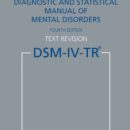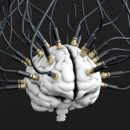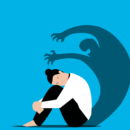Popular Posts
Want to become a patient?
Upcoming Events
Most Recent Articles
Hoarding treatment: Choosing the right therapist
If you are an individual who struggles with hoarding, you might have been frustrated by negative treatment experiences in the past. For most individuals who hoard, treatment can be challenging. However, it is an essential ingredient for regaining control and reclaiming your life. When selecting a therapist to help you address your hoarding, make sure that your potential therapist practices cognitive behavioral therapy for hoarding (or CBT for hoarding). Based on research studies, this type of treatment is most likely to be effective in supporting long-term positive changes and leaving you less vulnerable to relapse. Unfortunately, there are very few South Florida psychologists who have formal experience with hoarding treatment. Make sure that when you interview your potential psychologist, you ask them about their experience in treating hoarding. A CBT orientation alone is not sufficient; make sure that they’ve treated other patients who hoard and can explain how cognitive behavioral therapy can be tailored to specifically address hoarding in the context of acquiring, organizing, and discarding objects. Good CBT therapists will also explain how exposure and response prevention (a CBT component most frequently discussed in the context of obsessive-compulsive disorder) will be integrated into your treatment. Fortunately, there are resources that make choosing a qualified therapist slightly easier; check out the IOCDF’s database of treatment providers...
Read MoreSpecific phobias: symptoms & CBT treatment (reader question)
Question: Basically, I wanted to know from an expert, what can a phobia do to a person? How does it affect them mentally? Also I see that you’ve got a new treatment philosophy — is there any way you can talk me through it? One of the goals of cognitive behavioral therapy (CBT) is to learn to better understand the interrelationships among thoughts, feelings, and behaviors. Once you understand how these things are connected, it gives you a lot of power to implement change. Most people who seek therapy do so because they are experiencing an emotion they don’t want to have. In the case of depression, the person might feel sad. In the case of a phobia, the person might feel scared. People often have trouble modifying these feelings directly because emotions tend to be somewhat involuntary. If you’re sad or scared, there isn’t really a switch you can flip to feel better. We, as humans, can’t modify our emotions through sheer act of will. Fortunately, CBT gives us the tools to modify our thoughts and behaviors, which then indirectly affect how we feel. Relative to our emotions, we have much more control over our behavior and (to a somewhat lesser extent) our thoughts. Through behavioral and cognitive changes, we can effect changes...
Read MoreWebsite updates: Research, treatment philosophy, & information sections
I am working on some substantial content changes to this website, which will be rolling out gradually. Just to orient you: 1. My OCD research section has been updated. 2. I have added a section about my treatment philosophy. 3. I am in the process of developing a psychoeducation section for this site. My goal is to provide basic information about many of the common problems I treat. These include obsessive compulsive disorder (OCD), social anxiety (social phobia), panic attacks (and panic disorder), generalized anxiety disorder (GAD), phobias, depression, hoarding, body dysmorphic disorder (BDD), trichotillomania (trich), tics, and Tourette’s syndrome (Tourette’s disorder). Questions? Comments? Sound off...
Read MoreERP therapy for OCD: Shifting from destructive to constructive to gestalt notions
Here’s a question for you: Is exposure and response prevention (ERP) fundamentally a destructive or constructive process? I think that many people naturally conceptualize it as more of the former than the latter. They conceive of ERP as being the process by which we can “unlearn” or “weaken” maladaptive associations. We learn, through repetition, to no longer be afraid of those things that previously incited fear. On the surface, this appears to be a notion predicated on destruction. In actuality, it is not. If you ever take the time to refer back to the basic animal literature on fear learning and fear “unlearning”, you’ll find that associations appear to be weakened largely as a consequence of new learning taking place. This new learning competes with (and weakens the expression of) previous learning. It is this process that accounts for spontaneous recovery, difficulties with generalization, and other such phenomena. As anyone who has completed a successful course of ERP can attest, the fear doesn’t truly just disappear. Rather, it’s replaced by a growing sense of agency, purpose, and a confidence in one’s ability to cope. Sure, the fear is, in essence, weakened. However, more importantly, one has learned to better tolerate OCD doubt and uncertainty, to be better at living without knowing. This gestalt, which...
Read MoreAdvanced ERP for OCD: how subtle rituals can limit your progress
What is exposure and response prevention (ERP) for OCD? As any good psychologist experienced in treating OCD can tell you, the most effective treatment for OCD is exposure and ritual prevention (ERP). You may also see this type of therapy referred to as exposure and response prevention. In this case, the semantics are immaterial; the concepts are exactly the same. ERP is a type of cognitive behavioral therapy (CBT) that is based on the premise that the best way to reduce your symptoms is to practice activities designed to trigger your anxiety and then resist any urges to ritualize. ERP has two main components: exposure – purposely doing activities that are designed to elicit your anxiety response prevention – actively resisting the urge to complete a ritual For example, for someone who worries about germs, an exposure might involve purposefully touching a trashcan and then resisting the urge to wash (i.e., a washing ritual). Both the exposure and response prevention elements are critical for effective ERP. Exposure without response prevention (or with poor response prevention) will not decrease your symptoms. In fact, in some cases, exposure without response prevention can actually make your OCD stronger because you are reinforcing the idea that the only way to escape from OCD-related anxiety is to ritualize. In...
Read MoreOCD and DSM-V: Taking the “anxiety” out of OCD
Psychiatrists and psychologists continue to debate the fundamental nature of OCD, trying to decide whether or not OCD should continue to be classified as an “anxiety disorder.” In some ways, OCD overlaps with other anxiety-related conditions, such as panic disorder, phobias, social anxiety disorder, generalized anxiety disorder, and post-traumatic stress disorder (PTSD). In other ways, OCD is unique unto itself. Although the current version of the Diagnostic and Statistical Manual (the book that psychologists and psychiatrists use when making diagnoses) classifies OCD as an anxiety disorder, the next revision is likely to give OCD its own category of related conditions (see here). Regardless of your position on the conceptual issues involved in this change, there are many pragmatic benefits that arise from treating OCD-related conditions as distinct from the anxiety disorders. For example, it is likely that this change will ultimately increase the availability of funds for OCD-related education, treatment, and research. This will be appreciated by patients, clinicians, and researchers alike. Questions? Comments? Sound off...
Read MoreOCD & ECT (electro-convulsive therapy): Not a first-line treatment
If your only diagnosis is OCD and you don’t have any other complicating factors, be cautious when considering electro-convulsive therapy (ECT) for treating your OCD. ECT can be a very helpful intervention for many types of conditions (e.g., severe depression, bipolar disorder, schizophrenia), but it is not considered to be a first-line treatment for OCD. Unfortunately, I have encountered several individuals recently who have undergone ECT without first receiving a good trial of exposure and response prevention (ERP). Research indicates that medication and intensive ERP should be attempted prior to undergoing ECT, unless there is a good reason why these interventions are counter-indicated. If you have OCD and you are considering ECT, consult with a psychiatrist who specializes in treating OCD. He or she can advise you about your best course of action. Questions? Comments? Sound off...
Read MoreOCD guilt, shame, disgust, anxiety & depression: Why treatment sometimes fails (and what to do about it)
OCD isn’t just about anxiety. Although anxiety is certainly a prominent feature of the disorder, clinicians who only attend to anxious symptoms can easily overlook some of its other core features. As a psychologist in Palm Beach, Florida, I work closely with kids, teens, and adults throughout the greater Palm Beach, Fort Lauderdale, and Miami areas on strategies for recovering from OCD. In the patients I treat, anxiety is often accompanied by significant guilt, shame, disgust, and depression. These features are not necessarily related to, or caused by, anxiety; they can be distinct processes. If you (or your psychologist) conceptualize exposure and response prevention (ERP) as only a means to habituate to anxiety but fail to consider how treatment must also address these other features, you are likely to have a suboptimal treatment response and will continue to experience significant residual symptoms. Furthermore, you might inappropriately label yourself as treatment refractory and pursue more invasive alternative procedures (e.g, psychosurgery or deep brain stimulation [DBS]) than may be necessary. Research studies suggest that these procedures can be effective, but who wants to have an unnecessary, irreversible, and expensive surgical procedure? Not everyone needs to augment their ERP with interventions designed to address guilt, shame, disgust, and depression; however, it’s worth considering if you have had multiple frustrating experiences...
Read MoreOCD, ERP, & doubt sensitivity: Shattering the illusion of certainty
Many individuals with OCD hunger for certainty. It’s a craving that often can’t be easily sated. Early conceptions of OCD from the 19th century acknowledged this issue directly, in that OCD was often termed the “doubting disease.” It is this need for certainty, the need to eliminate doubt, that leads many people with OCD to perform repetitive behaviors, which are known as rituals. For example, it is doubt about whether one’s hands are sufficiently clean that leads one to engage in repetitive hand-washing rituals. Likewise, uncertainty about whether a stove has been turned off (and worry about potentially dire consequences) can underlie checking rituals. Many different types of rituals involve reassurance-seeking behaviors. For people with OCD who have intrusive bad thoughts (e.g., What if I secretly want to hurt a family member? What if I don’t believe in God enough and go to hell?), an inability to tolerate doubt can be devastating. This can leave a person stuck in a moral quagmire that feels hopeless. The person not only has symptoms of OCD but also is experiencing an existential crisis about their own nature. It is for this reason that many people with OCD feel confused, guilty, and alone. Unfortunately, rituals never provide a long-term solution. Although they can sometimes be helpful for reducing...
Read MorePalm Beach trichotillomania (trich) support group
Okay, so in addition to the possible Palm Beach OCD support group, I am also thinking about forming a trichotillomania (trich) support group. For those of you who aren’t familiar with trichotillomania, it’s an impulse control disorder that is associated with compulsive hair-pulling behaviors. It is likely that trich will soon be officially reclassified as an OC-spectrum disorder in the upcoming DSM-V, which is the manual that psychiatrists and psychologists use when making mental health diagnoses. Possibilities for the group location include Palm Beach Gardens, Jupiter, Juno, or West Palm Beach. Miami and Fort Lauderdale locations might also be considered, but these are unlikely at this point. If you’re interested in this, please let me know. If you would like to receive email reminders about upcoming support groups, you can access our sign-up form here. Questions? Comments? Sound off...
Read MoreMiami/Fort Lauderdale OCD support groups for adults and kids
Several support groups for individuals with OCD are conveniently located near Miami, Fort Lauderdale, and Boca Raton. Some groups are facilitated by licensed clinical psychologists, whereas others are led by individuals with OCD. To view current support groups in South Florida (Dade, Broward, and Palm Beach counties), visit the IOCDF’s support group page here. Each support group listing provides information about the group’s focus, target age group, location, and leader. Listings also contain contact information for the sponsor of the group in case you want to obtain additional information prior to attending. Please note: different support groups target different age groups and different OC-spectrum diagnoses (e.g., OCD, trichotillomania, hoarding). Some groups are for adults only (18+), whereas others are for children and teens with OCD. Most groups are free to the public and offer opportunities for individuals to tell their stories, share recovery strategies, and ask questions. The Center for Psychological & Behavioral Science now offers free OCD support groups in Palm Beach County, Florida (i.e., Palm Beach Gardens, FL). If you would like to receive email reminders about our upcoming support groups, you can access our sign-up form here. Questions? Comments? Sound off...
Read MoreOCD symptoms: the obvious (and the not so obvious)
Symptoms of OCD are everywhere. Turn on your television, and you’re likely to catch at least a fleeting glimpse of obsessive-compulsive disorder (OCD). Many popular TV shows feature characters with OCD (e.g., Emma on Glee, Monk), and it is through this lens that many members of the general population get their first exposure to OCD. Unfortunately, if your understanding of OCD is based solely on depictions in the popular media, you are likely to have a relatively limited (and perhaps, warped) sense of what OCD really is. The truth is that OCD symptoms can manifest in many different ways. Although some symptoms are more common (e.g., a fear about about germs or getting sick), other symptoms can be quite idiosyncratic and often go undetected by inexperienced psychologists. The unfortunate consequence of this is that many people with OCD don’t know that they have OCD. Instead of recognizing their symptoms as being related to OCD, they blame themselves for their symptoms. They think that the reason they have scary or unacceptable thoughts is because they are not as “good” or as “moral” as they should be. This could not be further from the truth. In my work as a clinical psychologist, I have learned that most individuals with OCD are exactly the types of people...
Read MorePalm Beach OCD support group
UPDATE (10/19/11): These free OCD support groups are now running in Palm Beach County, Florida (i.e., Palm Beach Gardens, FL). If you would like to receive email reminders about upcoming support groups, you can access our sign-up form here. See our events calendar for upcoming OCD support group meeting dates. So I’m thinking about starting an OCD support group in North Palm Beach. There are many details that would have to be ironed out (location, time, etc.), but I think it’s troubling that Palm Beachers have such little access to OCD-related resources. Possibilities for the location include Palm Beach Gardens, Jupiter, Juno, or West Palm Beach. PBG is probably the front runner at this point. Obviously, all South Florida people are welcome. Whether you’re fighting OCD in Miami, Fort Lauderdale, Boca Raton, Boynton Beach, Lake Worth, Royal Palm Beach, Wellington, Delray Beach, Pompano Beach, Fort Pierce, Port St. Lucie, Greenacres, or beyond, we’d love to have you. If you’re interested in this, please let me know. Questions? Comments? Sound off...
Read MoreThe beginning of something new
Welcome to my blog. My name is Steven J. Seay, Ph.d., and I am a licensed psychologist in Florida and Missouri. I am currently the Director of the Center for Psychological & Behavioral Science. Over the coming weeks and months, I plan to use this blog to offer a variety of useful resources for individuals experiencing symptoms of anxiety and depression. Because obsessive-compulsive disorder (OCD) has always been an area of primary interest for me, I will begin by adding blog posts focusing primarily on OCD and other related conditions. These conditions include compulsive hoarding and trichotillomania (compulsive hair pulling), as well as a variety of other conditions. I will discuss evidence-based treatments for these conditions, symptoms associated with these disorders, strategies for selecting a therapist, and a variety of other topics. If you are interested in learning more about a particular topic, please let me know in the comments and I’ll do my best to accommodate your request. For individuals experiencing symptoms of OCD and other related conditions, it is important to remember that not all therapies (or therapists!) are created equal. I cannot overstate this enough. Working with a therapist who has not been adequately trained to treat OCD or a related condition may, at best, cause you to make slower progress...
Read More


































